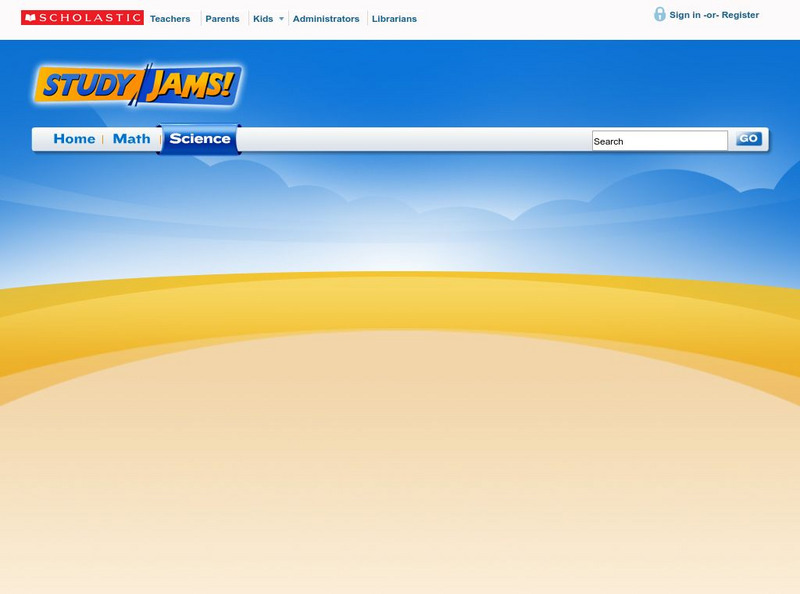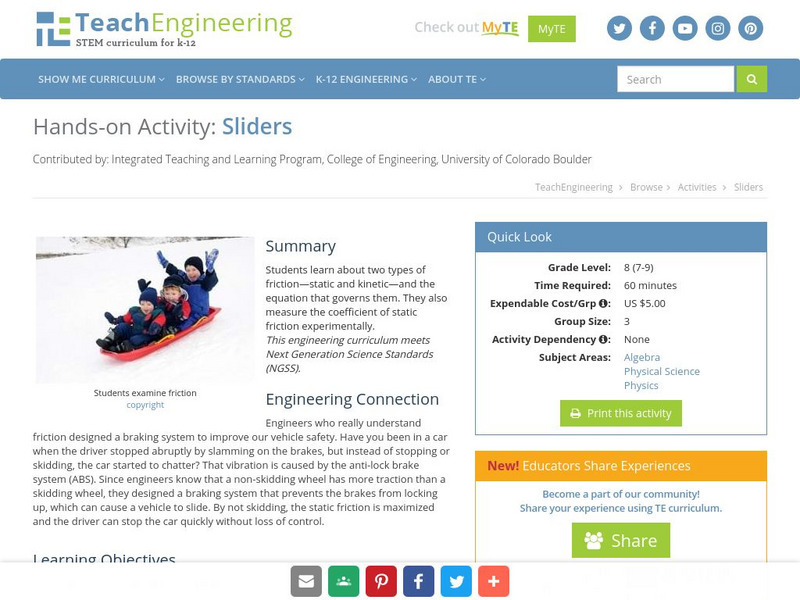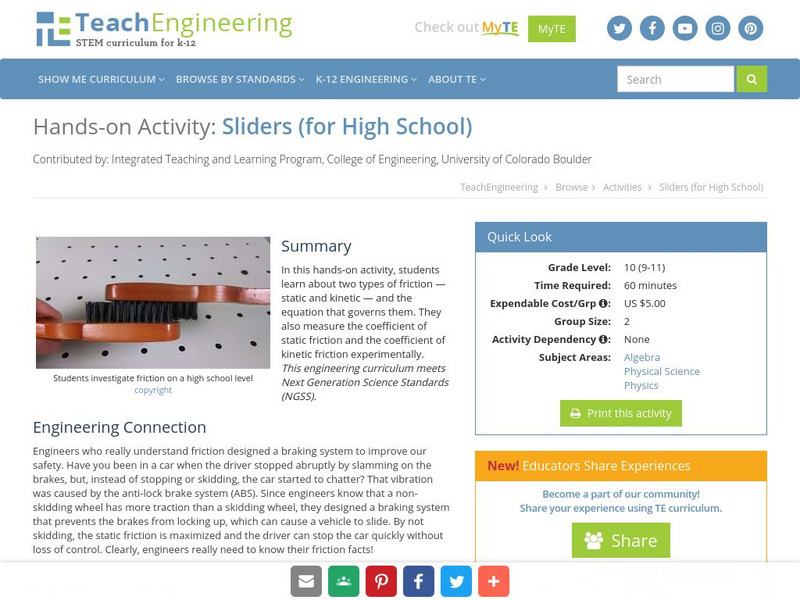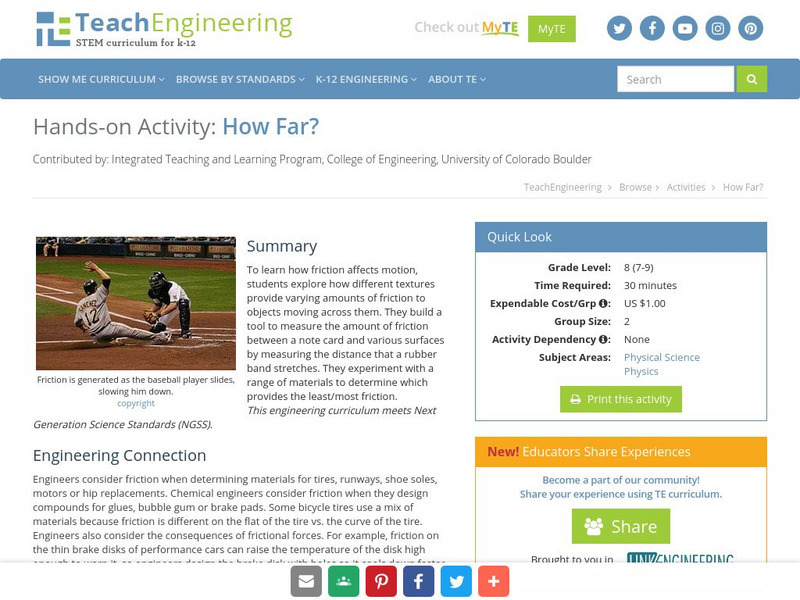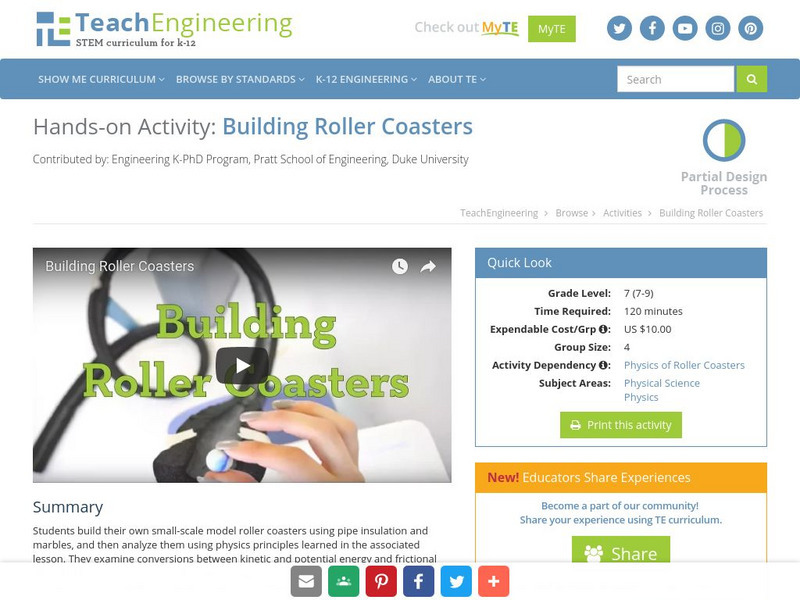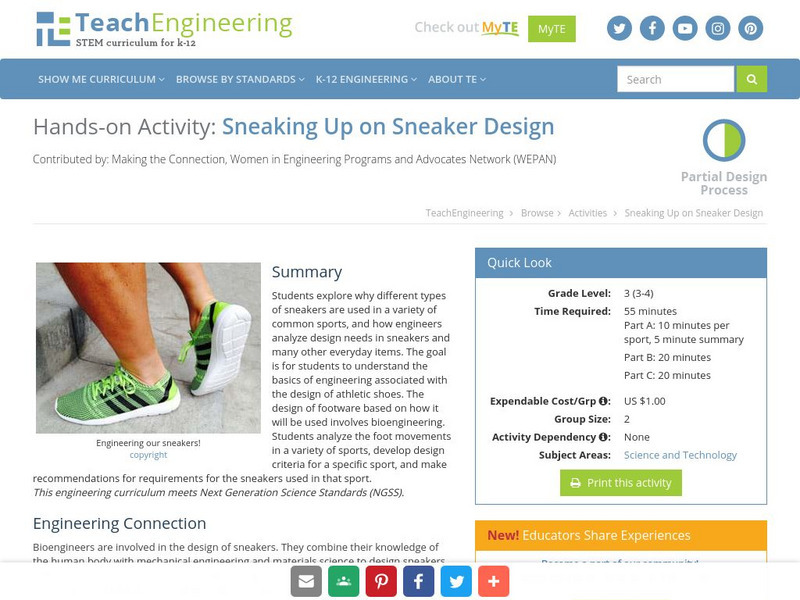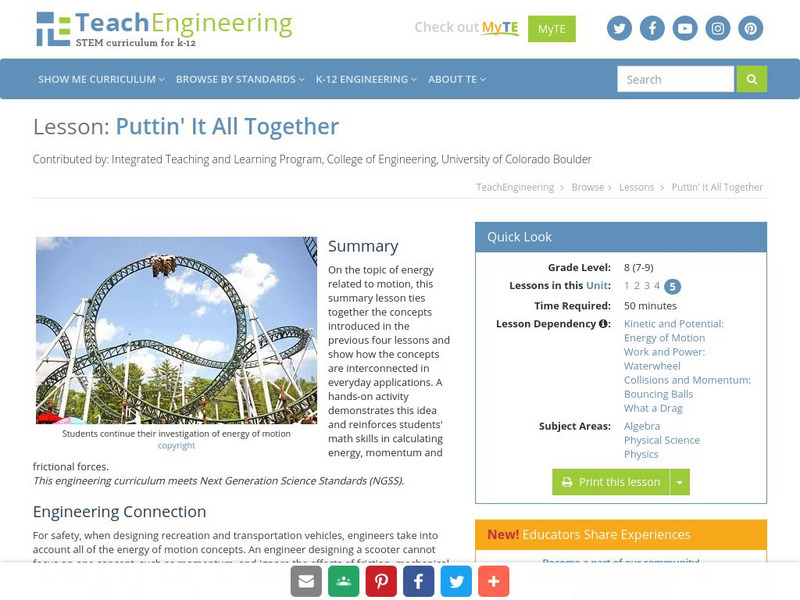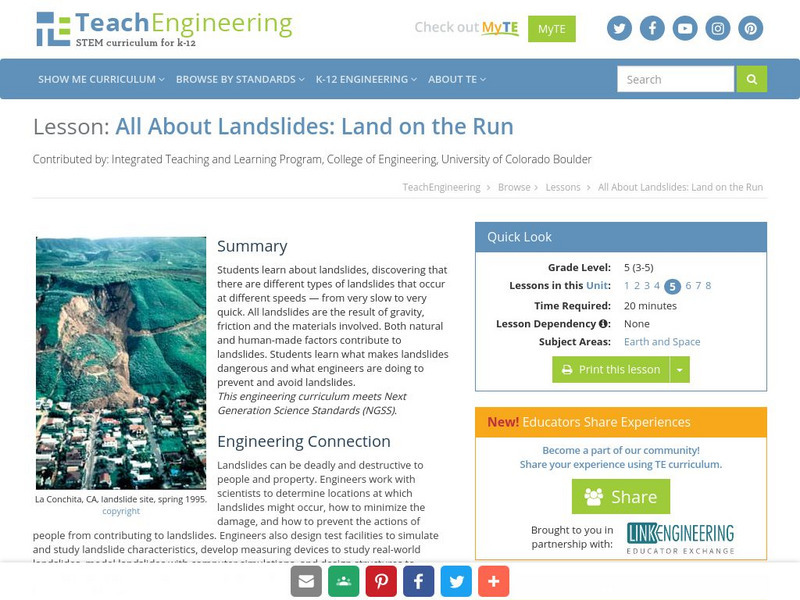Other
Wikibooks: Physics Study Guide
A handy resource that gives an overview of equations and definitions pertinent to an introductory, college-level physics course, with two of its three sections focusing on motion-related topics and principles.
Other
A Magic Classroom: Nail Balance Puzzle [Pdf]
In this lesson, students try to balance fourteen nails on the head of one nail by outwitting gravity.
Center of Science and Industry
Cosi Columbus: Hover Cup
Science experiment in which you make a hovercraft, a machine that uses compressed air to do work, from a paper cup. Includes full list of materials, procedures, and scientific explanation of how air flow can minimize friction and cause...
Educaplus (Jesús Peñas Cano)
Educaplus: Coeficientes De Rozamiento [In Spanish]
This is a virtual laboratory to determine the static and dynamic coefficients of friction.
Scholastic
Scholastic: Study Jams! Science: Forces and Motion: Acceleration
A video and a short quiz on acceleration.
University of Colorado
University of Colorado: Ph Et Interactive Simulations: Masses and Springs
Use this interactive, animated lab to explore conservation of mechanical energy.
Channel 4 Learning
4 L: Science Essentials: Get Physical
Find a review of many aspects of the physical world. Simple explanations of electricity, gravity, and the solar system. Included are materials for teachers to use for enrichment.
Sophia Learning
Sophia: Friction: Lesson 4
This lesson will introduce the concept of friction and explain how it can affect forces. It is 4 of 5 in the series titled "Friction."
Sophia Learning
Sophia: What Are Forces?
This lesson will introduce forces and give an overview of some different types of forces.
E-learning for Kids
E Learning for Kids: Science: Pirates: What Are Some Forces Around Us?
Covers the meanings of force, friction, and gravity, and the differences between magnetic and elastic spring force, and between weight and mass. The effect of air resistance on an object's motion is also touched upon.
Other
Science Hobbyist: Sticky Electrostatics
A series of activities focusing on charge interactions, charging methods, and the conservation of charge. Activities utilize scotch tape and other readily available items. Includes explanations of what is happening.
TeachEngineering
Teach Engineering: Sliders
In this hands-on activity, students learn about two types of friction - static and kinetic - and the equation that governs them. They also measure the coefficient of static friction experimentally.
TeachEngineering
Teach Engineering: Sliders (For High School)
In this hands-on activity, students learn about two types of friction - static and kinetic - and the equation that governs them. They also measure the coefficient of static friction and the coefficient of kinetic friction experimentally.
TeachEngineering
Teach Engineering: Ramp and Review
In this hands-on activity - rolling a ball down an incline and having it collide into a cup - the concepts of mechanical energy, work and power, momentum, and friction are all demonstrated. During the activity, students take measurements...
TeachEngineering
Teach Engineering: Ramp and Review (For High School)
In this hands-on activity - rolling a ball down an incline and having it collide into a cup - the concepts of mechanical energy, work and power, momentum, and friction are all demonstrated. During the activity, students take measurements...
TeachEngineering
Teach Engineering: Fascinating Friction!
In this activity, students use wood, wax paper and oil to investigate the importance of lubrication between materials and to understand the concept of friction. Using wax paper and oil placed between pieces of wood, the function of...
TeachEngineering
Teach Engineering: How Far?
To learn how friction affects motion, students explore how different textures provide varying amounts of friction to objects moving across them. They build a tool to measure the amount of friction between a note card and various surfaces...
TeachEngineering
Teach Engineering: Building Roller Coasters
In this hands-on activity students learn about the laws of physics by creating a marble roller coaster.
TeachEngineering
Teach Engineering: Sneaking Up on Sneakers
This activity explores why different types of sneakers are used in a variety of common sports. It connects how engineers analyze design needs in sneakers and everyday items. The goal is for students to understand the basics of...
TeachEngineering
Teach Engineering: What a Drag
Students learn about friction and drag - two different forces that convert energy of motion to heat. Both forces can act on a moving object and decrease its velocity. Students learn examples of friction and drag, and suggest ways to...
TeachEngineering
Teach Engineering: Puttin' It All Together
On the topic of energy related to motion, this summary lesson is intended to tie together the concepts of work, power, collisions, momentum and drag. A hands-on activity demonstrates this idea and reinforces students' math skills in...
TeachEngineering
Teach Engineering: Red Light, Green Light
Building upon their understanding of forces and Newton's laws of motion, students learn about the force of friction, specifically with respect to cars. They explore the friction between tires and the road to learn how it affects the...
TeachEngineering
Teach Engineering: Land on the Run
Students learn about landslides, discovering that there are different types of landslides that occur at different speeds - from very slow to very quick. All landslides are the result of gravity, friction and the materials involved. Both...
Physics4kids
Physics4 kids.com: Friction Basics
This resource provides a brief overview of friction. Its' affects on solids, liquids and gases is described with diagrams. An explanation of how friction is measured is included in the discussion. An online quiz can be used to check your...



![A Magic Classroom: Nail Balance Puzzle [Pdf] Activity A Magic Classroom: Nail Balance Puzzle [Pdf] Activity](https://d15y2dacu3jp90.cloudfront.net/images/attachment_defaults/resource/large/FPO-knovation.png)
![Educaplus: Coeficientes De Rozamiento [In Spanish] Activity Educaplus: Coeficientes De Rozamiento [In Spanish] Activity](https://content.lessonplanet.com/knovation/original/120227-0d4a7b664ffccd9c0d60dd346c219b72.jpg?1661771795)
